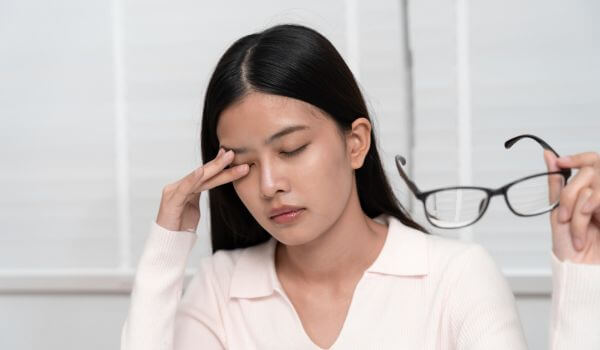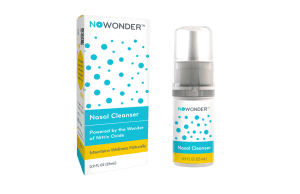There’s growing interest in the importance of testosterone in female health. Both healthcare providers and clinical researchers are focusing on the subject of testosterone replacement therapy. It was overlooked for many years, because the main area of interest was on male testosterone. The change has been quiet, but now when people hear the word testosterone, they are no longer thinking exclusively of men. Low testosterone, often referred to as low T, can also lead to symptoms in women, especially decreased energy, reduced libido, and diminished muscle mass. What many people don’t realize is that women also produce testosterone, albeit in smaller amounts than men, and the hormone is vital for their overall health and well-being. By addressing this issue, women can benefit.
The rising buzz about female testosterone

For many years, discussions about hormones focused mainly on estrogen and progesterone. Testosterone was seen as something that belonged to men. That assumption is changing. Research and clinical experience show that testosterone plays a meaningful role in women’s energy levels, mood balance, sexual interest, physical strength, and even mental clarity. Before menopause, women actually produce more testosterone in total than estrogen, just in much smaller concentrations than men. This is one reason why conversations around testosterone therapy for women are increasing, particularly for women who notice significant changes after midlife, major stress, or medical procedures.
Understanding testosterone in women’s bodies
Women produce testosterone in the ovaries and adrenal glands. This hormone supports bone density, healthy muscle tone, red blood cell production, and emotional well-being. Levels can naturally decline with age, and the decline can accelerate around perimenopause and menopause. Surgical removal of the ovaries leads to a more rapid drop. Other influences include pituitary issues, adrenal disorders, oral estrogen use, certain birth control pills, long-term corticosteroid therapy, chronic stress, poor sleep, and nutritional changes.
On the other hand, consistently elevated testosterone may be linked to conditions such as Polycystic Ovary Syndrome (PCOS), which may present with acne, irregular cycles, and increased hair growth. In both cases, too little or too much, the key theme is maintaining healthy hormone balance.
What low T does to sexual health
Testosterone supports sexual desire, sexual thoughts, bodily responsiveness, and the ability to experience orgasm. When levels fall, a person may notice lower interest in initiating intimacy, reduced internal “spark,” and changes in comfort due to vaginal dryness. These experiences often unfold slowly, and many people assume they must simply “push through” or attribute changes to age or relationship stress. Addressing hormone balance can help place these shifts into context.
Dealing with Hypoactive Sexual Desire Disorder (HSDD)
HSDD describes a sustained decrease in sexual desire that feels distressing or out of character. It is more common than many realize. The causes can include hormonal changes, mood shifts, relationship strain, certain medications, or chronic stress. Evaluation involves discussing symptoms, reviewing health history, examining metabolic and hormonal markers, and ruling out overlapping conditions. Treatment varies according to the cause and may include supportive therapy, stress reduction, targeted medication, and, in some cases, carefully monitored hormone strategies.

What to take away from the new focus on female testosterone
- Testosterone is important for sexual well-being, energy, mood, and physical strength in women.
- Levels gradually decline with age; surgical interventions and menopause causes a rapid decrease.
- Symptoms may overlap with other conditions, making evaluation important.
- Certain medications and lifestyle factors influence hormone availability.
- Low libido after menopause is a valid and treatable concern.
- Female testosterone cream and formulas such as AndroFeme may be discussed in some clinical settings to support postmenopausal treatment.
- The goal is balance – not raising levels above what is natural for women.
Frequently asked questions about female testosterone
What are common signs of low testosterone in women?
Changes may involve sexual desire, sexual response, or difficulty reaching orgasm. Beyond intimacy, many women describe persistent fatigue, lower motivation, mood fluctuations, and difficulty focusing. Physical shifts such as reduced muscle tone, gradual weight gain, thinning hair, and drier skin may develop over time. Because these symptoms can overlap with thyroid concerns, depression, and menopausal changes, a thorough evaluation can help clarify what is happening.
How is low testosterone evaluated?
A clinician typically reviews personal history, daily experiences, and health background. A physical exam and targeted blood tests, such as total testosterone, free testosterone, SHBG, and related markers, may follow. For menstruating individuals, testing at a consistent point in the cycle improves clarity. Results are interpreted in the context of symptoms rather than a single numerical cutoff.
IsraelPharm is here to help. Our telehealth partners in the United Stated (RXfor.me) offer telehealth services for women in need of an specialist who can give you the right prescription for testosterone replacement therapy.
Can lifestyle changes help support hormone balance?
They can. Strength-based exercise helps maintain muscle tone and functional strength. Sleep and stress management support the hormonal system’s rhythm. A nutrient-supportive diet provides the building blocks for hormone synthesis. While lifestyle alone may not correct every cause, especially when ovaries or adrenal pathways are involved, these steps often support energy, resilience, and well-being.
What should someone know about female testosterone creams?
Female testosterone cream, including formulations like AndroFeme, is typically prescribed at low doses intended to restore hormone balance within the normal female range. Dosing and monitoring are important because individual absorption can vary. The aim is to address symptoms without exceeding physiologic levels. Regular follow-up helps ensure the testosterone replacement therapy remains safe and appropriate.
Is high testosterone always a problem?
Not always, but long-term elevation should be evaluated. High levels may appear in conditions such as PCOS, which can involve acne, irregular periods, or increased hair growth. Management focuses on identifying the underlying cause, supporting hormonal balance, and improving quality of life. The most important theme is restoration of balance rather than increasing or lowering hormones in isolation. Inositol Plus is a simple over-the-counter dietary supplement that was specifically designed to treat women who have developed Polycystic Ovary Syndrome.













